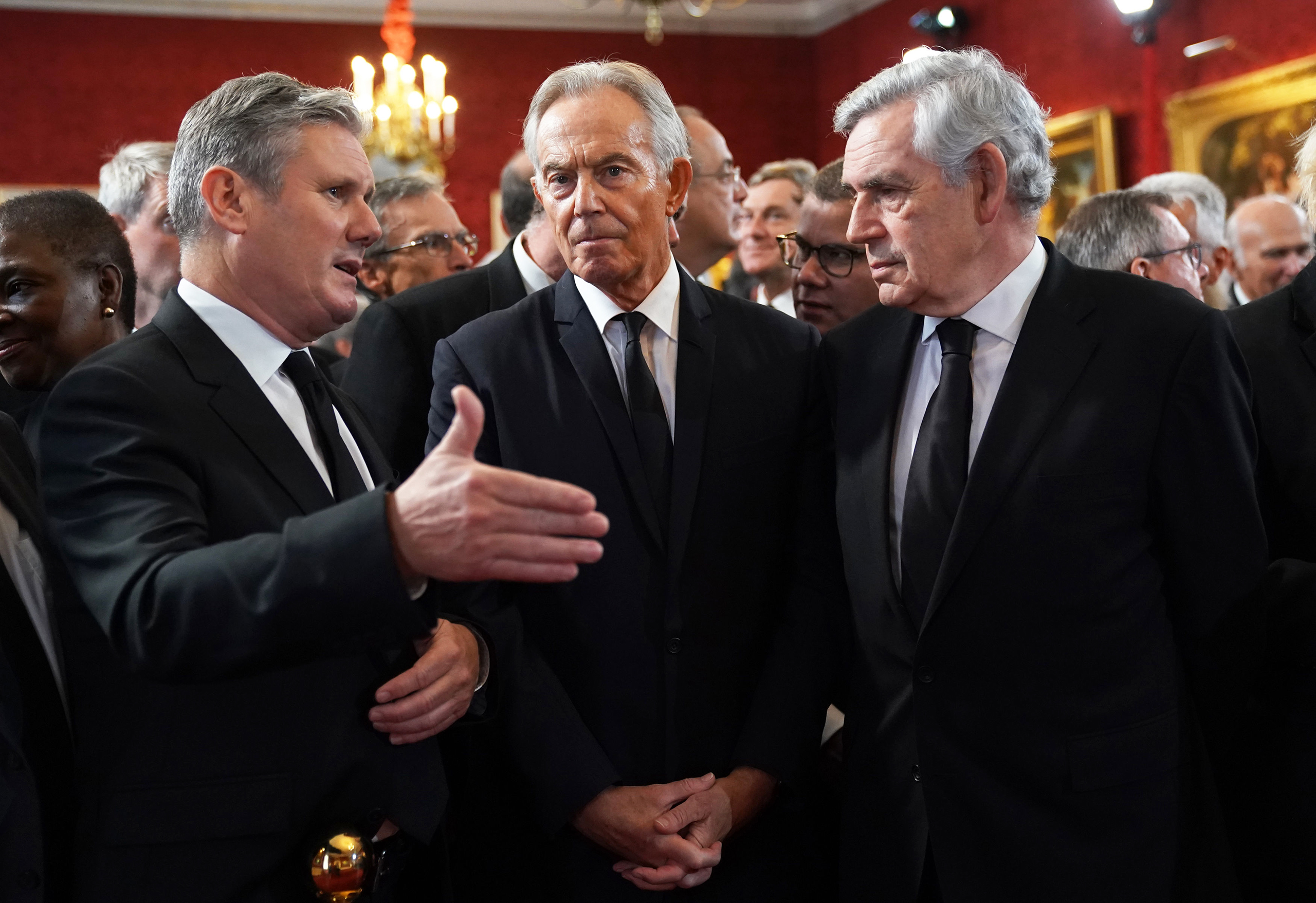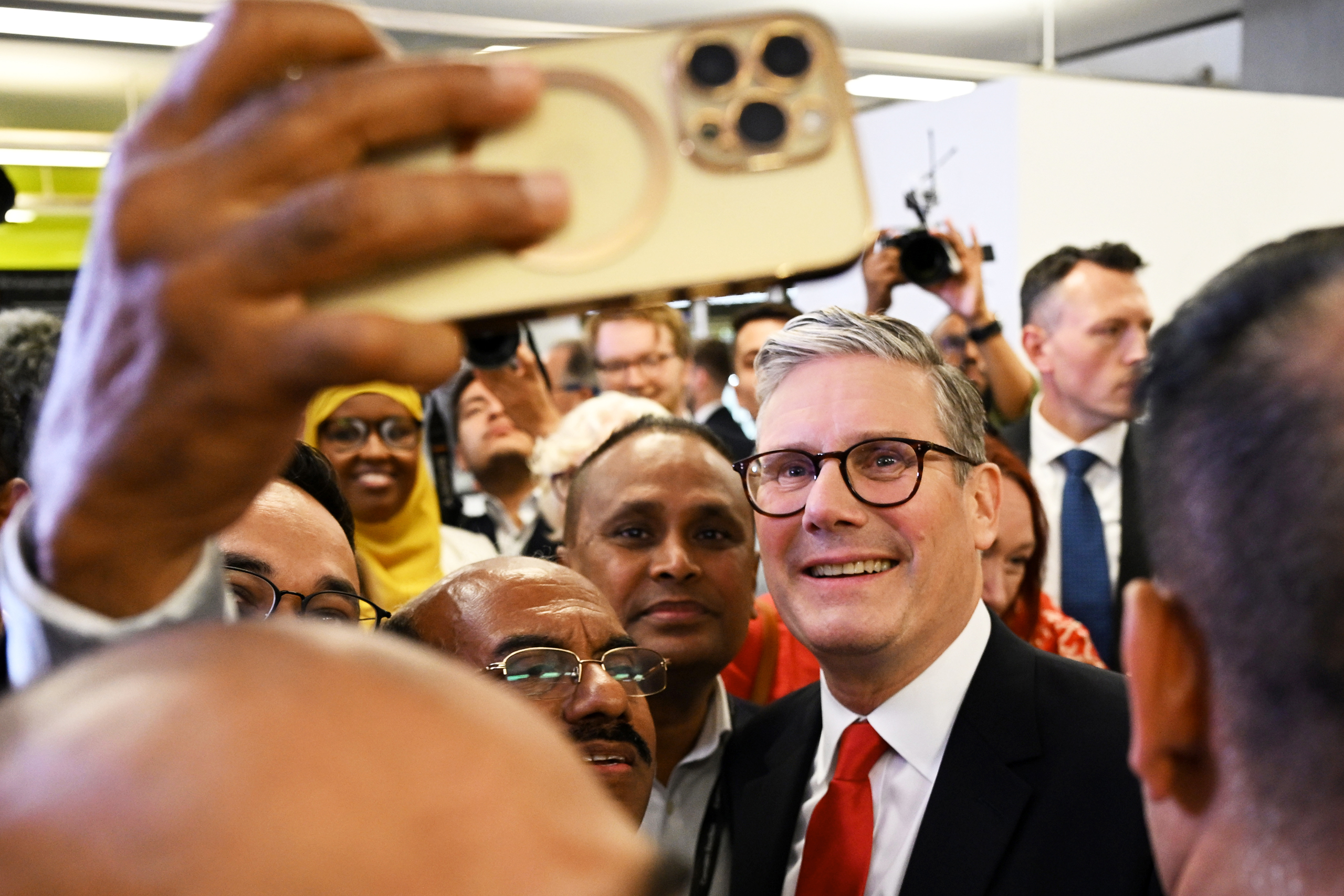Keir Starmer came late to official politics, and his timing was good. Election as a Labour Party MP in 2015 for a safe central London seat gave the distinguished lawyer a prime view of the melodrama that soon engulfed both party (Jeremy Corbyn’s left-populist roadshow) and country (Brexit’s civil war). Two more UK-wide defeats, in 2017 and 2019, shattered Labour but propelled Starmer — steady, firmly anti-Brexit, an expedient radical — to its leadership in 2020. Against all expectation, he has now felled a waning Conservative majority of forty-eight with but one blow, inflicting a vast defeat on Labour’s historic enemy.
The scale of Starmer’s achievement is hard to overplay. It stands alongside, and may even outrank, Tony Blair’s victory in 1997, which ended eighteen years of Tory rule. Blair secured 418 seats in the House of Commons and an overall majority of 179; Starmer, according to the normally reliable exit poll, looks to have won around 410, with a majority of 170. The man who bears a knighthood as well as the forename of Labour’s first leader has richly earned his own spot in its pantheon.
The two moments, 1 May 1997 and 4 July 2024, now conjoin. Even more so as Starmer has latterly adopted so much from Blair’s early playbook: campaigning focus (five “missions”), rhetoric (“change” as the mantra), staging (lots of British flags), style makeover, policy vagueness. Several ministers-in-waiting, advisers and about-to-be quango personnel further bridge the four-decade gap.
In other ways, starting with age — Starmer is sixty-one to Blair’s forty-three — the linkages are less exact. Each was helped to Number Ten by a cascade of Tory “sleaze” but the economy bequeathed by John Major’s team in 1997 was sturdier than today’s unproductive one. Britain’s hunger for change had a trace of optimism in 1997, whereas the present-day mood is fatalistic. For an incoming Western government of the centre-left, the geopolitical climate was almost benign when set against current perils. The country then was divided, but was primed to move on; now, much of it luxuriates in and profits from deep polarisation.

Parallel lives? Britain’s next prime minister, Keir Starmer, with Labour predecessors Tony Blair and Gordon Brown, shown here at King Charles’s proclamation in 2020. Kirsty O’Connor/WPA Pool/Getty Images
Also well to remember is that in both moments, sentiment could be fluid. Many who had not voted for “New Labour” were caught by its fans’ post-election euphoria, some even revising their voting choice. And such shifts didn’t stop. For many, the “Blair rage” that mushroomed after 9/11 and Iraq, already visible over Kosovo in 1999, made his landslide temptingly dismissable and his record in office one great betrayal. Starmer now has Blair as both inspiration (a hat-trick of election wins) and warning. In a febrile land, far from Blair’s 1999 promise of “a model twenty-first-century nation,” his own triumph will mutate. It may, quite soon, be brandished as a taunting measure of his perfidy.
A constant effort from Starmer’s inner circle, at its heart the clever Morgan McSweeney, will thus be to avert seeing its promise vanish into the maw of a relentless media-grinder. In this respect, elements of Labour’s campaign strategy may come to dent the new government’s sense of command.
Labour played a blinder from the off, its slick operation all the more impressive as Rishi Sunak, the Conservative prime minister, sprang the six-week election campaign on 22 May, months before he had to. The ensuing Tory effort proved so self-harming that it alone might have handed Starmer the prize. But Labour, steeled by fourteen years in opposition — and raw memories of pro-Tory tabloids’ juicy feasting on its “tax grab” plans — was taking no risks. Coyness about its plans for office was ingrained. There were exceptions: VAT on private schools to fund teacher recruitment in state ones, a state-owned company to create a “clean energy superpower.” But overall, the gleeful sight of Tories in visible meltdown counselled reserve, not boldness.
Labour’s campaign thus offered no real clues as to how Keir Starmer would govern. In other times, a leader’s evasiveness on policy matters might have been terminal. So might his many recantations over these years — for example, on overturning the Brexit vote, support for Jeremy Corbyn (“would make a great prime minister”), green investment plans (shrunk), the criteria of woman’s rights (identitarian, then biological). In these, a zigzagging light traveller has sidestepped examination.
Starmer’s feat, not least the “destruction of Tory England,” assures a joyful aftermath and deserved honeymoon. Yet the strategic logic of his evasions may yet come to exert a political cost. Brits are in unforgiving temper. And if the Conservatives fully merit their nadir, neither Labour’s leader nor his party — odd as it seems just as “the new dawn has broken” (© Tony Blair, 1997) — so far have a tangible bank of goodwill to draw on.
Voting data, incomplete at the time of writing, will amplify this point. A turnout reported to be significantly lower than the 67 per cent average of the previous three elections would confirm the widespread discontent with politics as a whole that is a consistent poll finding of recent years. (The pollster Luke Tryl says the most common one-word description of Britain from focus-group members is “broken.”) More significant are assessments, one by the analyst Colin Rallings, that Labour’s vote share will fail to reach even 40 per cent. This would be a lowish figure for a winning party, let alone in a landslide. In 1997, Blair took 45 per cent, his high point; Corbyn’s was 40 per cent when he lost in 2017.
Nonetheless, the British electorate’s expert or instinctive calculations have again somehow bent the vagaries of a winner-takes-all system to its top-line collective will. Amid the long-term decline of party loyalties, that will is more transactional than ever. Today, nothing is more sobering than a sweeping victory, for it is also an absolute demand to deliver. Not least when the winners have reached the summit with some finesse. Keir Starmer, and the huge Labour cohort in a lopsided parliament, be warned. •




